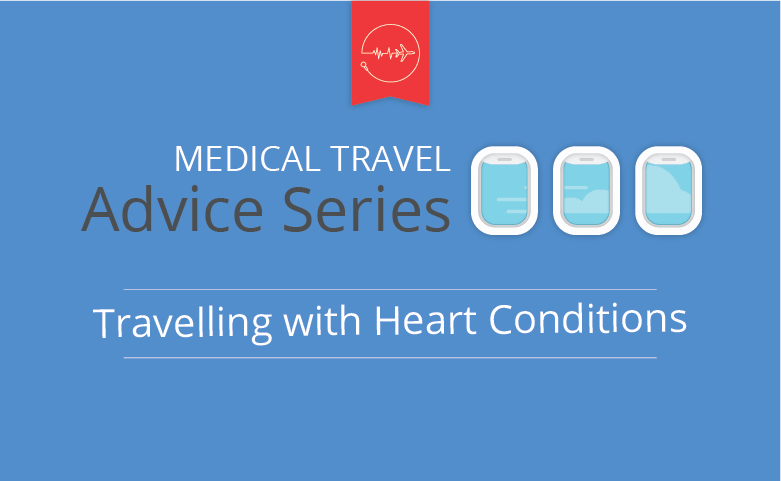Travelling with a heart condition: Everything you need to know

If you or a loved one has a heart condition, you should have no problem travelling, as long as you're healthy and your condition is stable.
However, if you are recovering from surgery or have a severe heart condition, travelling, flying in particular, can cause problems.
Preparation for your trip should start four to six weeks before you travel. Always check with your GP before making any travel plans.
We've compiled a step-by-guide that tells you everything you need to know about travelling with a heart condition, including how to get travel insurance, how flying affects your health and travelling with children with heart conditions.
What to consider before your trip
Trips abroad aren't off limits for people with heart conditions and although travel is relatively easy for some, there are a few extra things to consider.
Risks of travelling with a heart condition
If you are healthy and your heart condition is controlled or you haven't had a medical procedure or heart attack in the last month, you should be fit for travel. Always consult your GP for professional medical advice.
- DVT Deep vein thrombosis (DVT) is the formation of blood clots in the veins of the leg, pelvis, or arms. Symptoms associated with flying—especially long haul flights—like sitting long hours, dehydration, and the lower oxygen levels in a plane cabin can put you at risk of developing DVT. Flights for more than eight hours have the highest risk. If you're travelling from the UK, this is the equivalent of flying to America, Australia and most countries in Asia.
Choosing a holiday destination
Having a heart condition shouldn't stop you from travelling abroad. However, before you book your trip, it's important to consider the following.
- Flying with a heart condition Heart-related problems (like angina, heart attack, and irregular heartbeat) account for a high percentage of in-flight medical emergencies. If your heart condition is severe, you might want to choose a holiday destination that doesn't involve flying.
- Extreme temperatures If you have a heart condition, getting too hot or too cold might result in extra stress on your heart. Extreme temperatures (especially cold weather) can irritate the symptoms of a heart condition. If you are travelling to a colder climate, make sure you wear appropriate clothing and keep your extremities (hands and feet) covered and warmed at all times. If you're travelling somewhere that is extremely hot, wear light, breathable clothes as well as a hat and sunglasses. Drink plenty of water and avoid alcohol to prevent dehydration.
- Altitude Avoid hilly destinations like the Alps, Nepal, China, Pakistan and Peru unless you're fit enough for strenuous activity. And avoid travelling to high altitudes (over 2,000m) as lower levels of oxygen can cause breathlessness or angina. In high altitudes, the atmosphere gradually turns thin, and the amount of oxygen in the air decreases. Less oxygen in the air can cause your body to get tired quickly.
- Activities Beach holidays are a perfect way to relax, especially if you have a heart condition. But that doesn't mean you can't plan to do something more adventurous—as long as an activity isn't too strenuous. Some activities are off-limits for people with a heart condition. These include spa facilities like jacuzzis, saunas and steam rooms, this is due to the extreme changes in temperature, as this can put a strain on your heart. Check the Medline Plus website for exercises appropriate for people with heart conditions. Always tell your GP about your holiday plans for the best advice.
Preparing for your trip
Consult your GP before you go
Before travelling anywhere, visit your GP for health check four to eight weeks before you travel, regardless of whether your heart condition is mild or severe. This is extremely important when flying due to reduced oxygen levels at high altitudes.
Ask your GP if you're fit enough to travel and to supply you with a certificate if you're deemed fit to fly. Some airlines may refuse to allow you on board without a note from your GP, so if you have a heart condition a ‘Fit to Fly' test is essential.
Prepare your medication
Keep all medicines in their original packaging. Take all the paperwork for your medicine with you, including pharmacy details, your name and address.
Consider asking your GP for a medical card which should state your:
- GP's contact information
- Relevant health insurance information
- Full travel insurance information
- A complete list of medications, and
- Information on allergies and illnesses
Take an extra supply of medication for your trip, enough for your holiday plus an extra week. And never put them in your checked-in luggage, if your case is lost or stolen, you'll lose all your medication. Always store it in your carry-on.
Travelling abroad with a pacemaker
If you have been fitted with a pacemaker and are travelling abroad, you will need a copy of your electrocardiogram (ECG), particularly if you have an irregular heartbeat. You can ask your GP for a copy of your ECG.
It is also advised that you ask your GP or cardiologist to contact the closest medical centre to your accommodation in case of emergencies.
Contact information
If you have a pacemaker or an implantable cardioverter defibrillator (ICD), you will need your device identification card with you before you can travel. It's also worth making a list of emergency contact details including your local GP and cardiologist. Your list should include the number of the manufacturer who makes your ICD and pacemaker, in case you run into difficulties abroad.
Finding travel insurance when you have a heart condition
Finding travel insurance when you have a heart condition can be expensive and confusing, and some insurers make it difficult to find cover, especially if you're travelling overseas for an extended period.
How to arrange travel insurance with a heart condition
We make finding suitable travel insurance for your heart condition, easy. Simply take our free heart condition questionnaire. Our questionnaire will ask you to enter your details and answer any questions relevant to your heart condition. Your answers allow us to assess your current health condition and list suitable insurance options that cover heart conditions, which means we'll do the searching for you.
Apply for an EHIC medical card
If you're travelling in Europe, make sure you own a European Health Insurance Card (EHIC card). The EHIC card protects you from expensive medical bills and may allow you to receive free or reduced-cost health care.
Use our EHIC card page to find out more about the card, including how to apply, renew or replace on our dedicated EHIC card page. It's also where you'll find a comprehensive list of countries it's accepted in, and the circumstances it covers.
Flying with a heart condition
Most people with a heart condition can travel safely by air. However, if you've recently had a heart attack, heart surgery or been in hospital due to your heart condition, you should seek professional medical advice from your GP.
Long haul flights and deep vein thrombosis (DVT)
The biggest flight risk for people with a heart condition is deep vein thrombosis (DVT) and blood clots. Dehydration, low cabin oxygen levels, and sitting for long periods of time on long haul flights can increase the risk of developing a blood clot or DVT.
Symptoms of DVT are chest pain and trouble breathing and breathlessness and pain and/or redness of the arm or leg.
Ways to prevent DVT
- Keep hydrated, especially on long-haul flights
- Avoid drinking large amounts of alcohol and caffeine
- Wear loose-fitting, comfortable clothes
- Walk around and move at every opportunity
- Book an aisle seat on trains and planes, so it's easy for you to get up and to move
- Ask your GP or nurse about compression stockings for travel, and make sure these are measured and fit you properly
Your GP can confirm if you are at high or low risk of developing blood clots and provide advice on the precautions you should take.

Pacemakers and ICDs
You can travel by air If you have an implanted cardiac device or pacemaker including cardiac resynchronisation therapy (CRT) devices and implantable cardioverter defibrillators (ICD).
Implanted cardiac devices should not affect security screening in airports but it's vital that you carry your personal device identification card with you at all times. Your device ID includes essential information for airport security staff.
You can save yourself time by preparing for airport security in advance.
- Tell one of the security staff that you have an implanted cardiac device and show them your identification card.
- Don't touch metal surfaces around the screening equipment.
- Walk through the screening archway at a steady pace, if you take too long the metal casing of your device may set off the security alarm.
- If a handheld wand is used, alert the security staff as to where your device is under the skin.
Flying after a heart attack
No two heart attacks are the same and recovery time varies. If you have suffered a heart attack in the last two years, you must consult your GP about your travel plans. Your GP will advise you on whether it is safe for you to fly.
Your GP will consider things like if there were any complications after your heart attack, if you still have chest pain or breathlessness and if you are due to receive any more tests or treatment.
Pre-flight checklist
Use this pre-flight checklist and make sure you have everything you need before you travel:
- consult your GP before you make any travel plans. Your condition will affect which holiday destination you choose.
- ask your GP for a letter explaining your heart condition.
- carry your medication on board with you in a carry on.
- carry contact details of your GP, family members and the details of your pacemaker and ICD manufacturers.
- Carry compression socks stockings, avoid alcohol, and drink plenty of water.
- confirm aisle seating, which will allow you to get up and walk around periodically.
Travelling with children with a heart condition
Planning a trip can be stressful enough without worrying about your child's heart condition. Generally, the same travel rules apply to children with a heart condition.
Ask your child's GP or cardiologist for a letter explaining your child's condition. You cardiologist should be able to tell you where your nearest paediatric cardiac centre will be depending on your location.
When not to travel with a heart condition
It's generally safe for most people with a heart condition to travel. However, if your heart condition is severe, you might be at risk when flying. You should not fly if:
- you have unstable angina, arrhythmias or uncontrolled hypertension
- you have had a heart attack or stroke within the past month
- you have had coronary artery stent placement within the past month
- you have had coronary artery bypass surgery within the past month
Always seek professional medical advice from your GP before booking your flight.
Enjoy your holiday
For most people who have a heart condition, it is possible to travel safely, as long as extra planning and precautions are taken. Enjoy your holiday!
More advice
Ready for your online quote?
Tired of looking around for medical travel insurance? Why not use our quick and simple quote engine?
In need of assistance?
Our medical travel insurance team are ready to provide you with assistance regarding your quote. If you would prefer to talk to an advisor to receive a quote or have a query please contact our UK based customer service team. Find out details on our contact us page.


